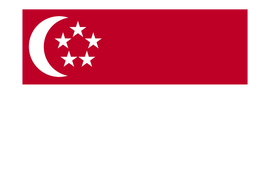U.S. Government Finds Critical Circumstances in Torsion Spring Imports From India and China
Estimated reading time: 3–5 minutes
WASHINGTON, July 29, 2025 — The U.S. Department of Commerce has made a preliminary decision about some springs used in overhead doors. These are called overhead door counterbalance torsion springs. The springs come from India and China.
What Did the Department of Commerce Find?
The Department of Commerce looked into whether these springs are being sold in the U.S. for less than what they cost to make. This is called “less-than-fair-value” (or LTFV). The Department also checked to see if too many springs were coming in too quickly, harming U.S. companies. This is called a “critical circumstances” investigation.
Spring Imports From India
The Department found that critical circumstances exist for all exporters and producers in India. The investigation said that the springs from India were being dumped in the U.S. at rates between 46.75% and 126.14%. The amount shipped into the U.S. also increased by over 100% after the investigation started.
The companies in India named in the investigation are:
- Alcomex Springs Pvt. Ltd.
- Asha Spring and Engineering Company
- Balaji Springs Pvt. Ltd.
- Modern Engineering & Spring Company
- Reliable Springs Ltd.
Because these companies did not give enough information, the Department used facts available with adverse inferences. The Department determined these companies did not cooperate fully.
Spring Imports From China
For China, the Department found critical circumstances for the China-wide entity. The dumping margins from China were very high, between 669.36% and 778.31%. The amount of springs shipped rose by more than 25% in the months after the investigation started.
The China-wide entity includes:
- Foshan Xulong Spring Factory
- Tianjin Wangxia Spring Co. Ltd.
- And all other companies that did not cooperate
For Chinese companies who got a separate rate in the investigation, the Department did not find a massive surge in imports.
How Did the Department Make Its Decision?
The Department uses information from the companies, trade data, and earlier findings by the International Trade Commission (ITC). The ITC has already said there is a “reasonable indication” that U.S. companies are being hurt by these imports.
Under the law, the Department looks for:
- High levels of dumping
- A large jump in imports in a short time
- Earlier findings of harm to U.S. companies
The Department uses special trade data and sets a 15% increase as the minimum to call imports “massive.”
Suspension of Liquidation
Because critical circumstances were found, the U.S. will hold off on releasing (liquidating) all shipments of the springs from India and China entered into the U.S. up to 90 days before the first suspension date. This is to collect duties if the final decision finds dumping occurred.
What Happens Next?
The Department of Commerce will make its final decision about critical circumstances soon. For China, the final decision is scheduled for August 11, 2025. For India, it is scheduled for October 15, 2025.
If you have comments, you can send them to the Department of Commerce. Comments on this topic must be sent in quickly—within three days after this notice. Rebuttals can be sent two days after the case briefs.
Summary
The U.S. government has found that overhead door counterbalance torsion springs from India and China are very likely being dumped in the U.S. This may be hurting U.S. businesses. Because of this, there are now extra steps being taken on spring imports until the investigation is finished.
Legal Disclaimer
This article includes content collected from the Federal Register (federalregister.gov). The content is not an official government publication. This article is for informational purposes only and does not constitute legal advice. For case-specific consultation, please contact us. Read our full Legal Disclaimer, which also includes information on translation accuracy.








